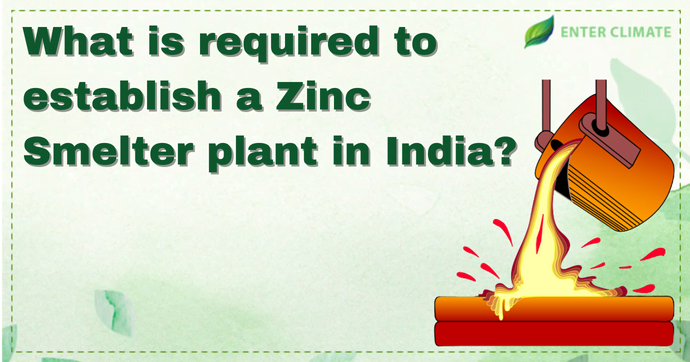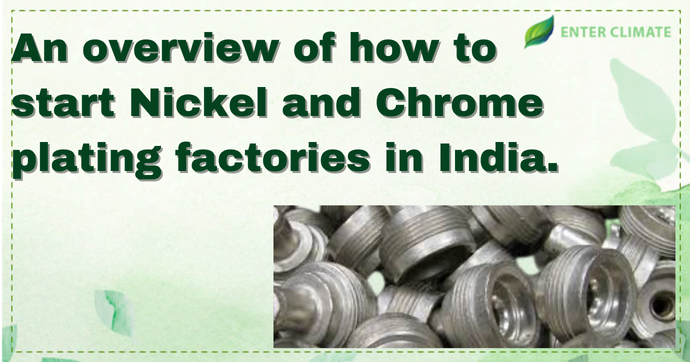How to start Water Bottling Plant?
 23 Dec, 2022
23 Dec, 2022 
It is easy to ascertain how vital water is for human survival. We use potable water for drinking, cleaning, washing, cooking, and recreational purposes. Though water is present in abundance in nature, human activities have rendered most of the natural sources of water unusable due to water pollution, with no options left in most cases but to drink treated and bottled water. There is also increased awareness about the health problems associated with drinking untreated water, which has further increased the trust in safe packaged drinking water. Therefore the demand for Water Bottling plants today is immense. Businesses that engage in bottling drinking water, like RO water, mineral water, etc., have increased in every part of the country. Underground water, which used to be fit for drinking, is not so today due to the contamination of underground reservoirs with contaminants like heavy metals, harmful chemicals, microplastics etc.
Today this necessity has been turned into a vast industry that packages and provides safe drinking water. Water Bottling Plant provides high-profit margins and uses a free resource. All that is needed is a clean source of water supply, a filtration system and a bottling plant, and you are set to go. The demand for bottled and packaged water is so big today that mineral water bottles can be found at almost every other shop, from small paanwalas to restaurants and eateries. Various methods are employed to purify the water, and numerous combinations of the processes are incorporated to ensure that the final composition of the product conforms to the most stringent norms mandated by the laws. The water business is not only a business but a necessity today. The demand for clean water has been increasing with the increase in the urban population. With limited sources of fresh water, the situation has led to increased demand for potable and clean drinking water in form of mineral water, a business serving water requirements for households, offices, schools, industrial establishments, etc.
Stages in Starting a Bottled Water Business
To understand the stages involved in the bottling plant setup and the cost involved, it is necessary to understand the activities in the unit, including water storage, treatment and packaging system. The treatment and packaging systems involved in the water bottling plant will need the following.
- Raw Water Pump
- Dual Media filter
- Carbon Filter
- Antiscalant Dosing System
- Micron Cartridge filter
- Pretreatment
- High-pressure Pump
- Reverse osmosis pump
- UV system
- Ozone System
The following stage is essential for starting a bottling plant business
Stage 1: Planning your Water Bottling Plant Business
This stage will need the entrepreneur to decide on the following aspects
Location: location is a crucial factor that can determine the profitability of the water bottling business. The proximity to a water source and good connectivity through the road is essential for capturing a larger market share.
Machinery: requirement for machinery is almost the same as mentioned above. However, with the variation in capacity, the entrepreneur will need higher-capacity machinery, thereby adding to the initial cost of the plant setup.
Space and power requirement: the space required to set up the whole unit will depend on the quantities of water that will be treated and bottled. This will, in turn, rely on the demand in the nearby market and the presence of raw material (i.e. water). There are four sections in the bottling plant: water treatment, bottling, quality control (lab) and overall utility. Generally, a standard 2000 LPH packaged bottling plant needs 5000 Sq. Ft built space with 3000 Sq. Ft of covered area. The power required will be around 65 HP.
Stage 2: Sourcing the supply of water for the Water Bottling Plant
When treated with reverse osmosis, water generates residual water to the tune of 30% of the total volume. It takes approximately 1.39 litres of water to produce a litre of bottled water (as per IBWA). Therefore sourcing a clean and constant supply of water is must. As CGWA NOC will not be granted for abstracting groundwater in a notified area for bottling plants; therefore, the plant has to use sources like natural springs, ponds, mountain and hill water runoffs, etc. After identifying the source of the plant, it is advisable to construct storage for water collection.
Stage 3: Sourcing Raw material for Water Bottling Plant
Water and plastic used to make bottles used in packaging are the two raw materials required. While PET plastic is the most commonly used plastic, some bottled water companies use polycarbonate plastic for their bottles. These are large-capacity bottles that can be washed and refilled again and again. Some premium brands are using glass bottles, too, for bottling drinking water.
Stage 4: Determining the expense of running a Water Bottling Plant
Ongoing expenses include electricity and other consumable expenses for running a water bottling plant. Water purification is energy intensive due to the power involved in reverse osmosis and other treatments (UV radiation, ozone treatment, etc.).The cost of the filter and maintenance on the plant labour cost are all factors that must be considered when planning for the business. Utility costs can also be high due to any other ultrahigh purifying and value addition to the product. Treatment of RO discharge water may also add to the cost.
Stage 5: Obtain necessary licences and Permits for Water Bottling Plant
The following licenses and approvals are to be obtained for setting up a water bottling plant in India.
Business Registration: Registering a bottling business as a legal business entity will provide you with specific incentives and assistance announced by the government and establish a separate legal identity for your business.
ISI certification: it is compulsory for all manufacturers who intend to set up processing units to obtain the ISI certification from the Bureau of India Standards (BIS). Packaged Mineral Water is regulated under IS:13428, and Packaged Drinking Water is governed under IS:14543.
Consent NOC
Every Water Bottling Plant needs a pollution NOC from the State Pollution Control Board. The NOC is granted under the green category as the bottling plant does not generate any significant waste apart from RO water discard. Consent NOCs, which the concerned State Pollution Control Board or the Pollution Control Committee issues, are in 2 forms, i.e. Consent to Establish or CTE and Consent to Operate or CTO. Documents required for Consent NOC are
- Duly filled Application Form of concerned SPCB.
- Site or layout plan with a roadmap
- Detailed Project Report.
- Details of the manufacturing process and finished products
- Details of installed waste management measures and pollution control measures
- list of machinery, the capital cost of the unit (land, building, and plant machinery)
- water balance, source of water, and its required quantity
- Land documents such as rent /lease agreement
- Industry Registration Documents.
- Consent fee (as applicable)
- Balanced Sheet Certified by a CA
Water test report from an authorised laboratory of raw water
- Pest control certification
- Test reports from SPCB-certified labs (chemist, microbiologists etc.)
- Documents related to ownership of land/lease for setting up the plant
- MOA, if applicable/partnership deed
- Electrical load sanction
- Sanction layout plan
- Any additional document mentioned in the application form
FSSAI Licence for Water Bottling Plant
A water bottling plant must also get trade and food business licenses from FSSAI. Documentations required for this licence are
- Photo ID
- List of proposed food articles
- A duly filled Form A or B by the applicant (as per the type of FSSAI Licence).
- Partnership Deed/ Certificate of Incorporation, Memorandum of Association(MOA)/ Articles of Association (AOA)
- Lease or rental agreement to prove land ownership.
- FSMS plan
- Supporting dossiers (NOC of Panchayat/ Municipality, health NOC)
- List of raw materials suppliers
- Form IX
- Water test report through a certified NABL lab.
- Import-export code (aka IEC) granted by DGFT
- List of machines and equipment
- List of directors and Partners list
- Medical certificates for workers
EPR Authorisation for Water Bottling Plant
EPR compliance is mandatory for all the water bottling plants as it is introducing plastic packaging with its product. The water bottling plant is required to obtain EPR Registration from CPCB or SPCBs/PCCs depending on the extent of their operation. Documents needed to obtain EPR Authorisation are
- DIC Certificate
- Consent NOC under Air & Water Act[1],
- EPR Action Plan for fulfilling EPR liability (State/UT wise)
- Document issued by ULB / designated state authority related to engagement of PIBO/WMA (waste management authority)
- Registration issued by SPCBs/PCCs to Plastic waste processing facility (PWPF) that will be engaged with for plastic waste processing
- Agreement of water bottling plant with PWPF for PW processing
- Agreement of plant with WMA
Miscellaneous stages in setting up the Water Bottling Plant
- Defining your Bottled Water Business Brand
- Creating your Bottled Water Business Website to create an online presence
Conclusion
Consumers prefer bottled water because it is easily available, easy to carry, store and transport. The bottling business profit margin is also adequate, and one can start this business with a moderate investment. Water and power costs will determine the running cost of a water bottling plant. Therefore a smart investment today will be to switch to renewable energy sources apart from other popular business practices that can be learnt from the assistance of industry experts. Also, licencing and authorisation processes can be streamlined and fast-forwarded with proper guidance.












